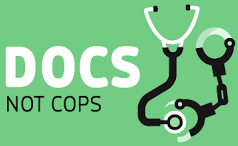Principles of campaigning
To be successful, it is important that you frame and build your campaign so that everybody in the community can be included, prioritising collective language based on shared concerns and principles. The NHS is the main institution in British public life, and its values of a health service free for everybody has a broad resonance amongst most people living in the UK. It is important to invoke and reassert these principles in your campaign.
Some other important principles to remember are:
- Do what you can to bring in as many groups and individuals as possible into the campaign. Whilst this issue might affect your community, many others may not even know it is happening. It is important to think of everybody who you can work with, even those who might not automatically be on your side.
- It is essential, in your campaigning, that you ensure migrants’ voices are given priority, and that their experiences are kept front and centre. This should take place in public events, the stories you tell and how you tell them, always focusing on individuals and the injustices they have suffered.
- Many individuals, particularly healthcare professionals and those working in hospitals and Trusts, are often restricted in what they can say and do in relation to upfront charging. It is important to support them with campaign language that makes the moral case for free healthcare, alongside the legal, professional and prudential arguments that make most sense in their context. Have a look at our key arguments.
- Your campaign should make it possible for everybody, in their different positions, to offer resistance to the hostile environment in a way that strengthens collective campaigning, brings people on board and doesn’t lead to negative implications for individuals.
- Similarly, it is worth thinking carefully about what you hope to achieve locally. Whilst the problem with charging migrants originates from central Government, there is lots that local institutions can do. These demands should be realistic (a change they actually have the power to make) but also ambitious. When individuals and organisations say that the issue ‘isn’t their problem’, you should aim is to make it their problem.
Some examples:
- Working through your local MP or council, work to secure a commitment from local GPs to register all patients, which they are obliged to do.
- Demand that your MP speak out and/or your local council pass a motion expressing their opposition to the Government’s policy.
- Campaign for your local NHS Trust to end ID checks, remove threatening posters, conduct research into the impact of NHS charging on migrants, assess the equalities impact of the legislation or even suspend migrant charging.
Ask your local CCG, local authority or regional government to conduct research into the issue, and how the charging policy conflicts with other objectives related to integration, community outreach equalities or public health.


